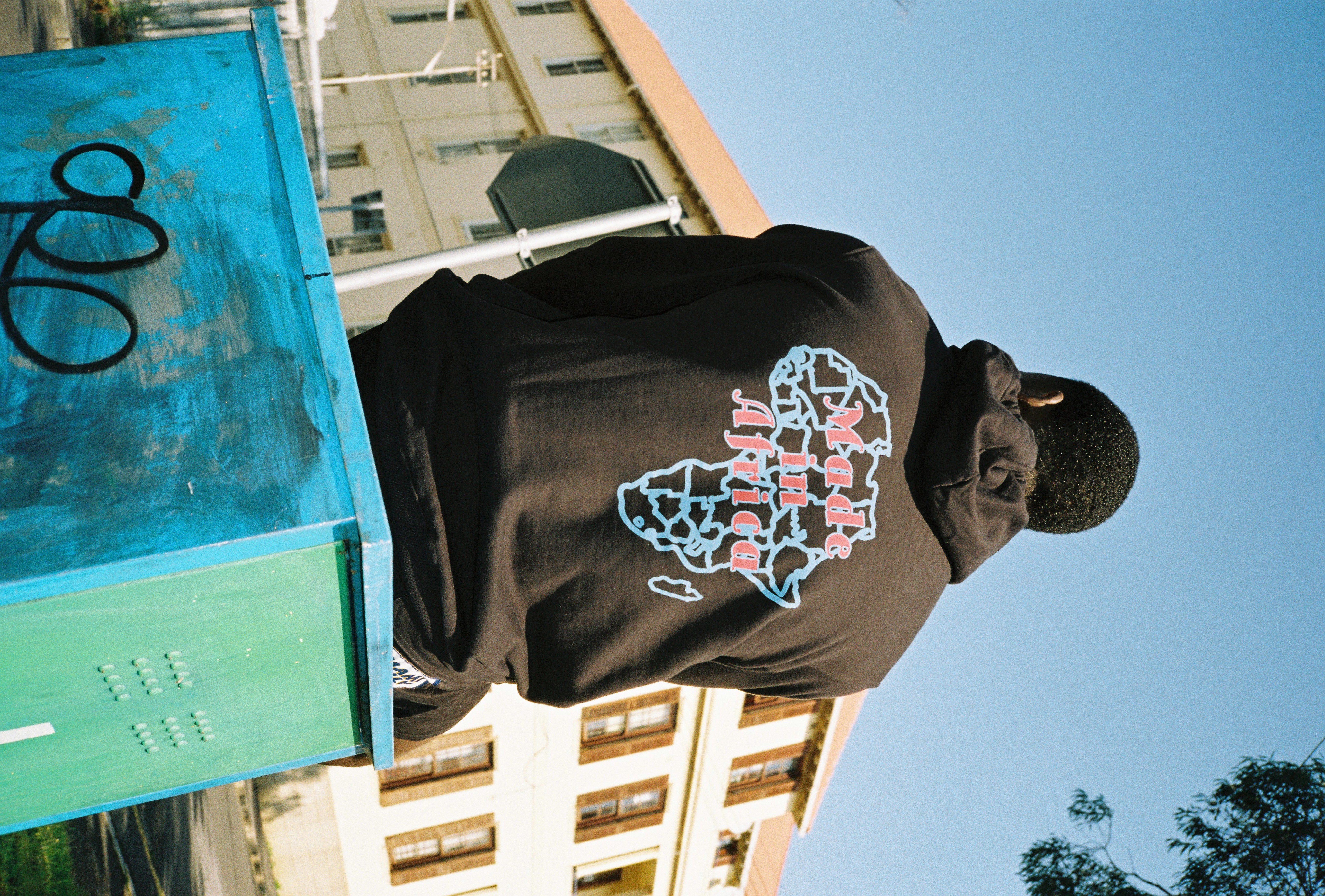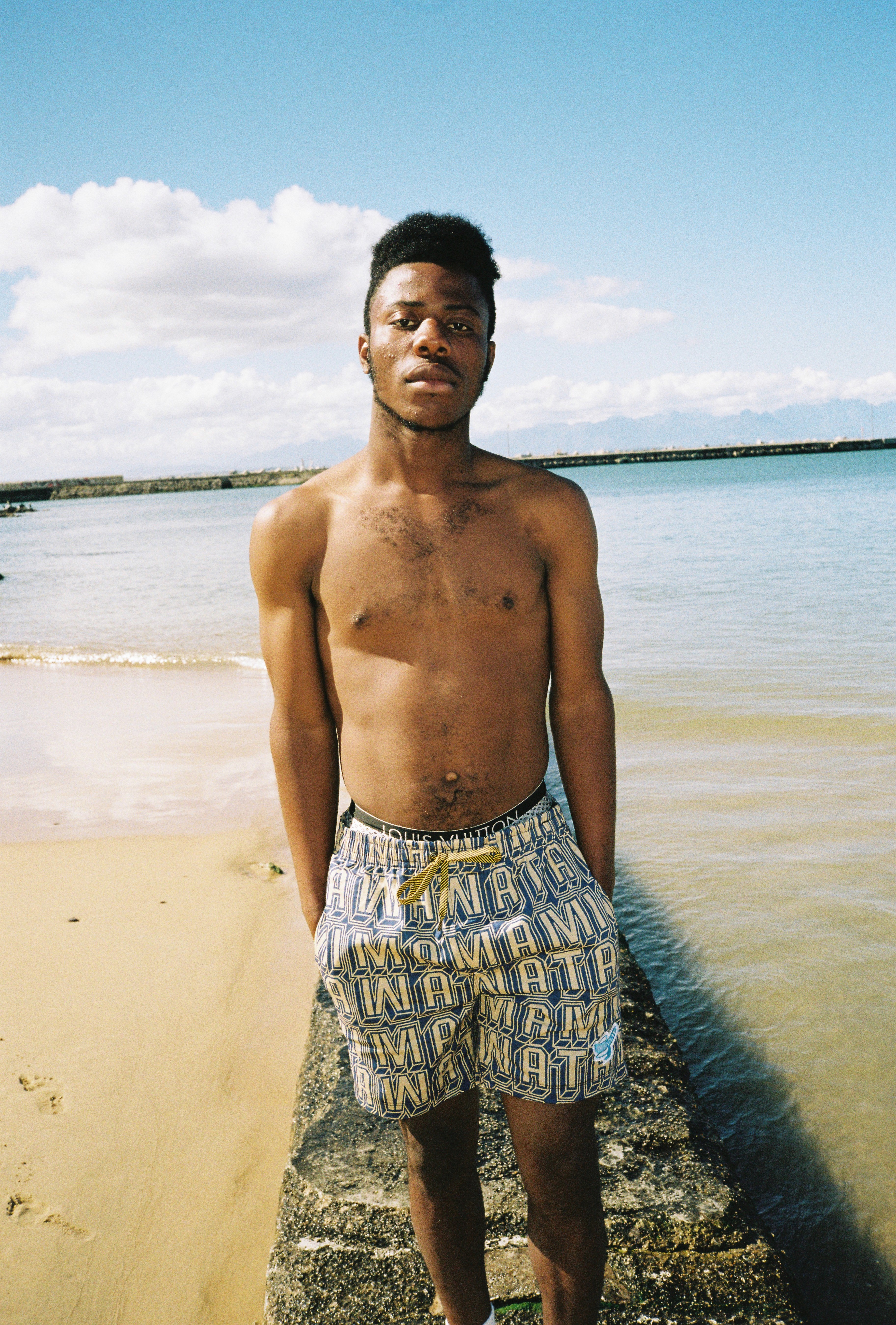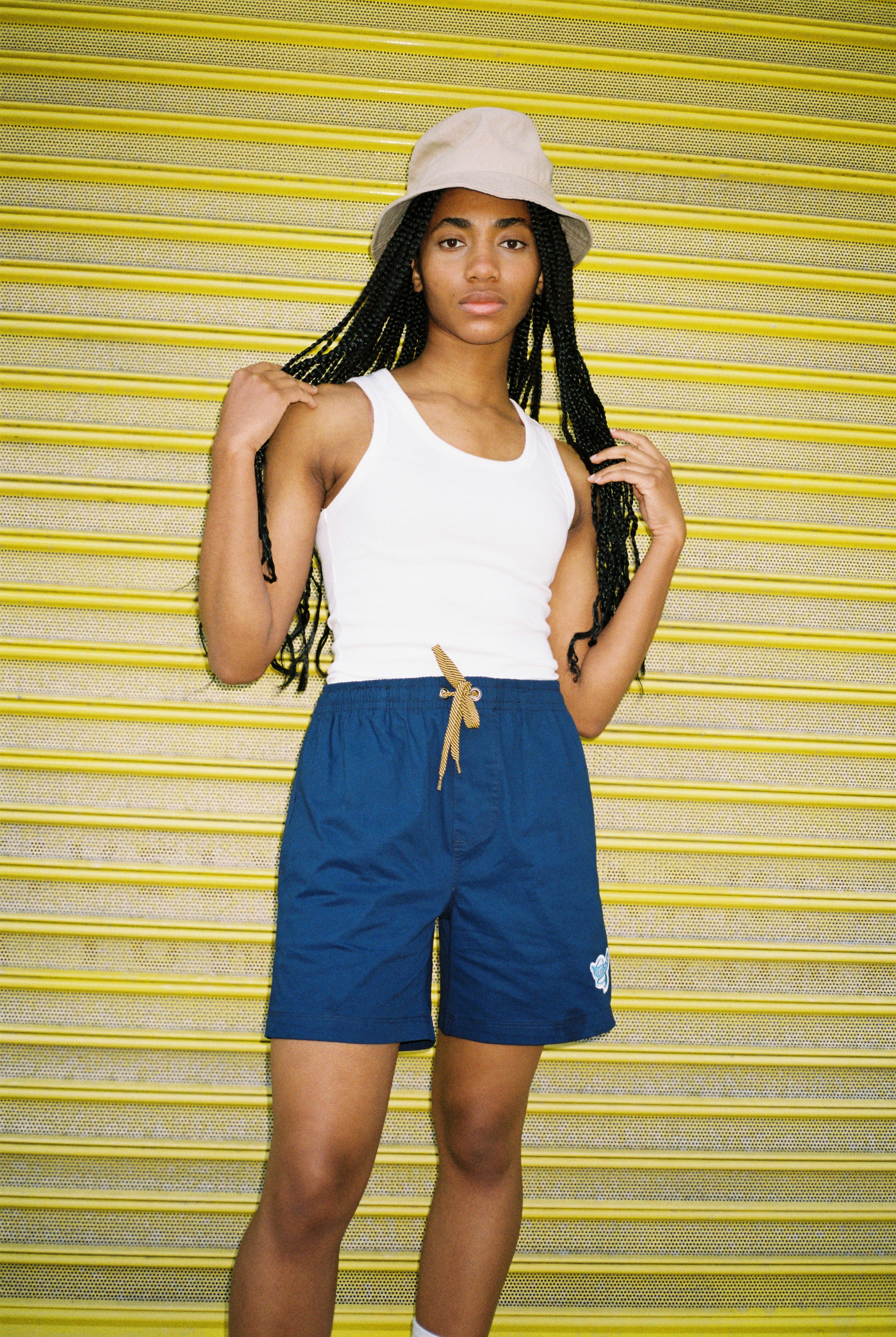
If ever there was a non-hater on this planet, it’s Selema Masekela. The longtime TV host is famous for using his various platforms to highlight people ripping, flipping, shredding, and just generally being awesome. He geeks out on boardsports like a kid and embodies Anthony Bourdain’s idea of living life as an enthusiast.
So you’d think that when Masekela — who’s been a respected voice in the action sports world for nearly 30 years — finally opened up about problems he’s seen with diversity, inclusion, and representation in the sports he loves so much, he’d get listened to. Not the case. In fact, he’s felt a wave of opposition from followers, some longtime friends, and many of the “dictators of what it all looks and feels like” at the corporate level.
How to battle against that sort of pushback? For Masekela, the answer is always kinetic. “Do something” could serve both as his mantra for exploring the outdoors and his method of problem-solving. The something, in this case, started with co-founding a South Africa-based surf-clothing brand, Mami Wata, in 2017. In 2019, came a goal-shattering Kickstarter for his book Afrosurf. A 3,000 copy print run for the project dropped in 2020 before it found a traditional publisher (Ten Speed Press) and relaunched in June of this year. Then, just last month, Masekela brought Mami Wata stateside with a drop of boardshorts, tees, hoodies, and button-ups that’s been covered everywhere from Variety to Cool Hunting to Afar.
As the chaos of launching his brand’s first US line mellowed just a little (mostly because everything had sold out in spectacular fashion), I spoke with Masekela about the Black surf movement, the African surf scene, and his goals for Mami Wata. Check out our full conversation below.
I’ve been tracking the Black surf movement with excitement. Obviously, it got that big profile in the New York Times over the summer. How has the conversation shifted over the past decade — and especially these past couple years — from when you were one of the only super visible Black faces in the board sports conversation?
I mean, it shifted a lot. When I take it back to the beginning for me — in the late ’80s, early ’90s — it shifted to a whole other solar system. I was very much used to just being an “only” 99.9% of the time. Even still, we’re down from like 99.9% of the time to like 85% of the time. But it sure feels like a whole lot more.
It’s great because I remember when I started having these conversations and being more vocal seven, eight years ago, I remember how very, very, very uncomfortable people felt when I would bring up the fact that, “Isn’t it weird that it’s just me?” And the ease with which people would say, “Well, you’re different. You’re a different kind of Black guy. You’re more like us. You do our things.”
Wow.
So, I’ve got a lot of my existence in an industry where, yes, a lot of people have come to respect what I do, and the storytelling, and the context that I put some of the big moments in these sports into. And they respected that I’m an active participant. But it was always hard to get people to understand how much different doing the thing is for me than it is for them.
One of the things that’s nice now is that I’m not the only one talking. And there were others that came before me, but we didn’t have social media. We didn’t have ways in which … I think if Tony Corley and Rick Blocker, who founded the BSA [Black Surfing Association] had done so, not in the ’80s. And done so in the aughts or the earlier part of this last decade, I think we’d be in a much different space and place because they were doing the grassroots work.
They were literally collecting people that would come down from San Francisco, and Central California, and San Diego, and Los Angeles to have these events where 50, 60 people would be together. It felt amazing that you’re on a beach with everybody that looks like you and then everybody goes off to their different ways. No way to really storytell that to the world. I think that what social media has done has allowed people that I like to call “onlys” to find each other so that they’re not “onlys” anymore. You’re able to create community, and shared experience, and storytelling via social media in a way where people don’t have any choice but to pay attention.
So, I do feel like we have come a long way. If you look at Textured Waves, and Color The Water, and City Surf up in San Francisco. At what Brick and Gage are doing with Black Sand, Un Mar de Colores. All these different folks that are doing a really beautiful job of storytelling experience and what it’s like in this shared commonality that everyone has in their stories of what it’s like to go and do a thing where you are the uncommon denominator.
It feels good. It feels really, really good. I dreamt of this day, but I never thought that this day would occur. So, it felt really nice to be a part of that New York Times piece, but not to have to be the focal point.
The “only,” as you say.
The only. To no longer be an only. If that piece happened without me, I would also have been fine and thrilled that our stories are being told in these kinds of places. I think it’s a larger conversation for the outdoors in general. I think, whether it’s mountain climbing, or trail running and hiking, or adventuring, obviously, the winter sports. In all these places, people are realizing, “Oh, there are definitive reasons why the only people who have been marketed to do these things or advertised to do these things look a certain way.” By addressing it, and helping to realize that there are barriers that have existed, and helping to create what access looks like, and opportunity going a long way, people are getting excited about, “Oh, we can expand this landscape and repopulate it in a way that’s far more reflective of what we look like as a society.”
I think people are also learning that for years and years and years, the idea of being able to find peace and joy in the outdoors, in the ocean, et cetera, has been an idea that white people have been very comfortable thinking it was just for them. So when they see Black or Brown and Indigenous people out there, they could be like, “Oh, we saw a such and such today. That was interesting.”As opposed to, “They were out in our space.” People have always felt really comfortable in coming up to me and saying, “Oh, that’s interesting that you’re here. That’s so cool. You do what we do. That you’re doing our thing.” And that’s what I’m hoping this whole time can be representative of ending, that being a thing.
Well, it’s interesting in the sense that surfing … I think that we think of ourselves in the community of surfers as very welcoming. There’s this hippie-ish bent. There’s loving nature. But there’s also, as you and I both know, a lot of territorialism in surfing. A lot of ego in surfing.
All this to say, have you felt like the surf community has welcomed this movement in the way that you’d like to see?
No, I don’t. I feel like elements of the community have, but the vast majority, especially when it comes to the front-facing core of the Orange County sort of “dictators of what it all looks and feels like” have not been very welcoming at all. And I think it makes them very uncomfortable that we’re having the conversation. It’s interesting, as you said, the individual experience of surfing is pure, spiritual, all the things that we already know. But the collective, and all the weird shit from land that leaks into the water that makes people feel like they have a sense of entitlement to be able to regulate who comes and goes. “And because I live up the street, I get to tell you what to do out here.”
We live in a country of stolen land and some dorks like to think they own a random Malibu surf break just because their parents live nearby.
Exactly. The shit is highly built around colonialism. While people would say, “Well, that’s not inherently racist.” Well, yeah, it might not be racism in its definition. But it sure as hell does plagiarize the playbook.
It’s definitely a shitty behavior that really smacks of a lot of bigger, very problematic attitudes.
The ease with which people practice it in water is because they know how to also do that on land. But everyone likes to pretend surf culture is super welcoming and a collective of free-thinking ideas. Sadly, it’s super, super tribal, wildly conservative in America, and has been for a very, very, very long time, dating all the way back to the ’60s.
I’m not surprised at all that the surf community’s response to diversity and inclusion is much like the triggered right-wing things that we’re hearing at school board meetings where, “My white child feels oppressed because all the other kids being made to be seen. Now my kids not seen anymore.” Which is wild, right? But that’s what the surf community is.
Everyone rushes to say, “The ocean doesn’t care. I’ve never seen it happen, so it’s not happening.” And it’s like, well, how many of us need to tell you what our experiences are for it to continue not to matter? Clearly, everyone around you in the water looks like you for a reason. Some of those reasons are because of shit we haven’t had access to.
Learning about redlining and learning how your community was kept from people who didn’t look like you getting to live there. That shit might be really hard for you to digest, but it doesn’t make it any less true. Learning the manner in which people can be aggressive towards people of color in the water, and specifically call out their race or color or gender as a way to try and dominate somebody. The idea that, hey, that shit has to change, that makes a lot of people uncomfortable because, for a lot of people in the surf community, that their whole identity is in being the person who runs shit in the water.
And there’s a history… You talked about Orange County. Board sports are entwined with Orange County’s neo-Nazi history. Board sports are entwined with, as you said, colonialism. There’s stuff that we need to be cognizant of, especially me as a white surfer, not saying “Well, it’s all good in the water, bro,” then dismissing someone’s concerns.
It’s hard because in a culture that looks at Duke as a golden God… Duke died penniless and a janitor. Most of what Duke was going out and doing was promoting surfing to the world, was based far more in the people who were leveraging him as the icon for tourism and business back home. Those people who were doing that were not Native and Indigenous. They were the people who had gotten there and set the shit up to make money. It’s very interesting that once surfing became cool in SoCal, the whole, “We’re going to lose the Indigenous Hawaiian story and just make it about Malibu and SoCal.” That’s how the story became told, as well as the Southern Coast of Australia, and I wanted to be like, “Are you motherfuckers crazy?” we will beat your whole entire asses, right?
It was this very interesting point where the Hawaiians said, “No, no more. If you’re going to come here, you’re going to come here and you’re going to walk with respect, because we are not going to have this last thing that we have also just be trampled over.” I think when you look at the resistance to even the Brazilian storm in the last 10 years. These guys had to go and win fucking four of the last world championships. Four out of six world championships in order for people to finally be like, “Okay, I guess it’s not a fluke and it’s not luck,” right? So, coming full circle, I have no surprise that a part of the surf community still feels very comfortable in keeping their heads in the ground.
And also taking very right-wing nationalistic perspectives in avoiding any sort of quote, unquote woke talk when it comes to surfing, like, “None of that shit’s going to take place here,” and we’re like, “Cool, you don’t have to participate.” But also like, “We’re here. We’re going to be loud. We’re going to enjoy this. And enjoy our ownership of the space just as much as you do.” It’s no longer going to be about you choosing to make room for us, because we’re here. And when I say we, I mean the various different forms of what “we” means other than “normal white coastal surf communities.”
I’ll cop to a classic white blind spot here — as the Black surf movement started to roll out and I spoke with people who were friends and who were in the movement, my knee jerk was like, “Oh, surfing’s kind of doing a good job with this, right guys? Right?” But I was saying that through, obviously, my very limited prism. And to hear from you that this is not the case is disappointing — though it also makes sense, for all the reasons we just listed.
If you saw my DMs, Steve…
Yeah?
The people who tell me how this is all a grift and how ungrateful I am, “Because it was, we — white people — who put you in the position that you are in. And this is how you repay us?”
It’s so wild for me to hear that is all being said to you, a man who has contributed so very much to surf culture.
The idea that I have friendships and deep relationships with white folk, yet I still speak out against white supremacy, infuriates people. There’s still such this idea that if I say “racism” or “white supremacy,” that I’m talking about all white people. That I’m talking to you. So obviously these people are so triggered that it’s like, “Well, it’s so clear that this is a hustle that ‘you people’ are on, because I see you with white people all the time.”
And I’m like, “God, what a fucked-up existence you must have in order to come to that deduction. That lets me know how many people who don’t look like you, that you do hang out with.” I realize for many people — because they say this in their messages — feel like, “I loved you, you were my guy, and now you’re not. You were ours. Now, you’re saying that you’re Black. I felt good because you were the one Black guy that I knew that I don’t even actually know. But I felt like you were ours. Now, I know I’ve lost you to… ” “Reality.”
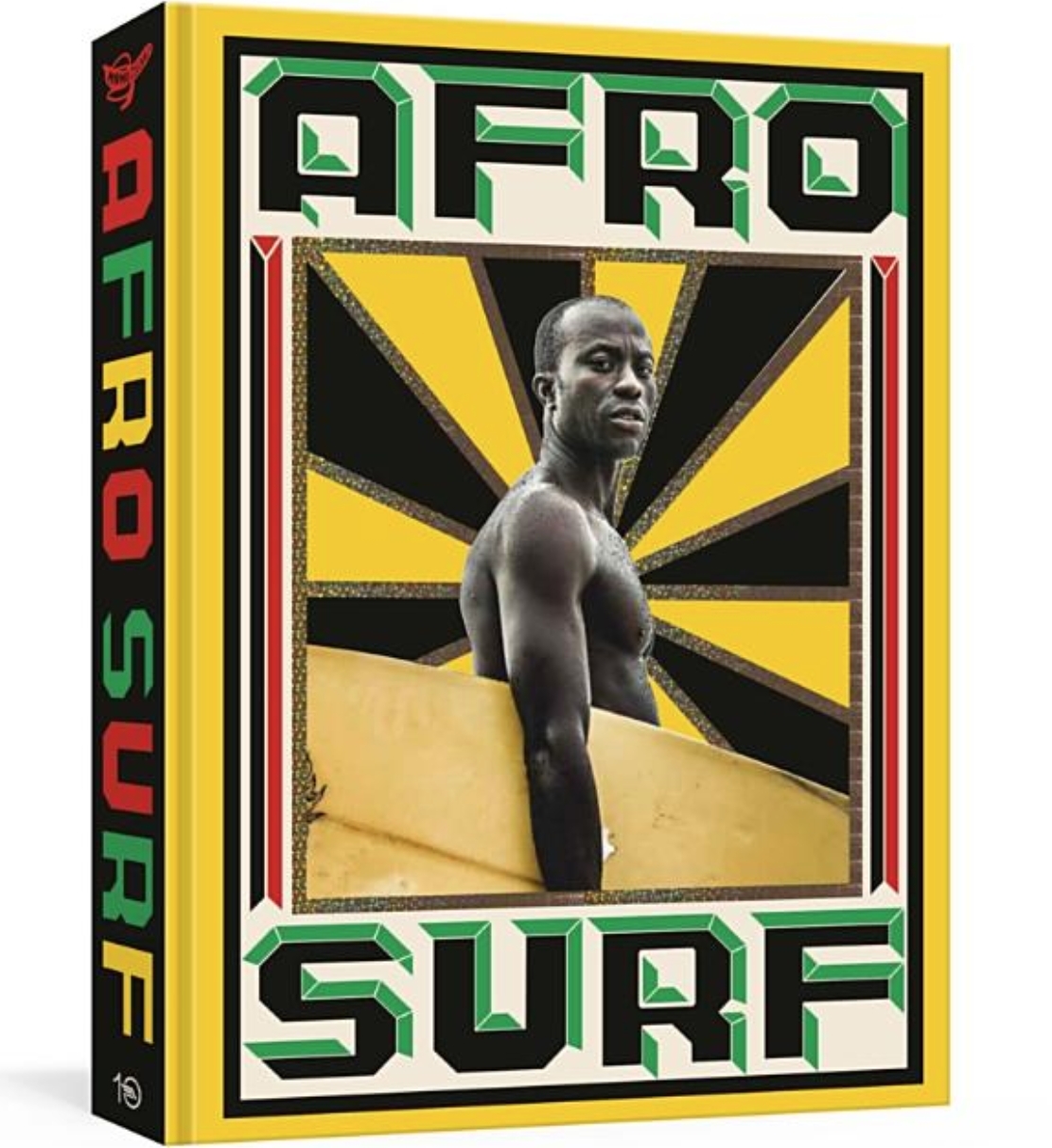
Mami Wata along with your book, Afrosurf, is rooted in South Africa. In that way, feels like it ties up some connections between you and your dad [legendary jazz musician Hugh Masekela]. I remember crying tears of joy in Namibia as I worked my way up the Skeleton Coast surfing certain breaks alone for hours — surfing alone or in an uncrowded lineup brings the emotion out of surfers. Besides the J-Bay and maybe Durban, do you have some African surf memories that you’ve made that feel iconic or any spots there that you’ve just fallen in love with?
Obviously, there are breaks that are going to get, I don’t want to use the word “discovered” but certainly looked at as surf breaks for the first time in the years to come.
I have a list of places that I’m trying to go to because of getting invites from local Indigenous people there, who are like, “Oh, yo, you think you like going over there. Well, wait till you come to here.” So, I’m excited about engaging in more surf discovery in Africa that has to do with actual Africans showing me these breaks and their respective surf culture.
That’s different than the way it was always sold to us, which is, “it requires the best people in the world from X place or X place to go, discover, everyone gather on the beach, cheer and clap for these people.” And they came, they left, and, “Oh, by the way, we left a couple of surfboards there for the Natives.” I’m excited for an end to that. Listen, the coastline up both sides [of the African continent]. I mean, we haven’t even scratched the surface of what’s possible.
I remember being in Madagascar and seeing waves peeling out. And just thinking like, “Holy shit, some surfer better than me is going to ride some barrels alone for days.”
Yeah, I was in Kenya last March on the farthest and eastern end of the islands. I saw some setups and some waves that blew my face off. There was just no one around. Then, I started asking questions and one of our boat guys was like, “Oh, if you come here between X and X, and we get these wind swells from such and such, these points will light up for 50 miles.”
I was just like, “Wait, what?” I mean, I remember the first time that I paddled out in East London [South Africa]. I was on tour with my dad, and surfed Nahoon Reef and some places in PE [Port Elizabeth, also in South Africa]. And obviously, I have a very, very powerful relationship with the Durban Beach breaks because that’s the first place I ever surfed in South Africa. It was during a very, very volatile time as apartheid was in the midst of being dismantled. It wasn’t an all-positive experience for me. After a few days, the cops literally set up a sting operation to try and bust me for jumping off of the jetty at North Beach. Because they reached into their books for three days and tried to figure out, “How could we get this Negro to stop showing us what the future of South Africa will look like?”
So, they found an old antiquated law that said, “You’re not allowed to jump off the jetty,” when that’s how people have just been getting into the water for years and years and years. They accosted me. They assaulted me. And they found out what I was doing there, who my father was, and they let me go.
But the irony was that this was the first time I’d been to South Africa. My dad’s been in political exile for 30 years. I’m here with him on his homecoming tour, finally getting to discover my full heritage and family in what’s supposed to be the wake of apartheid. The same thing that caused him to have to leave for his life. I find myself in with surfing, which was essentially my music.
So, it was every time I go back there, to be able to see now what it is, where on any given day, the lineup is just filled with young Black South African kids ripping at every level. I mean, the last time I was there was in 2019 and I went surfing with the Surfers Not Street Children kids. I couldn’t wipe the smile off my face for days. I just couldn’t believe I was in the same place where, 30 years earlier, I didn’t have any power without my name. If it didn’t hold the weight that it did in South Africa, it could’ve been a far a different situation.
That’s a fascinating story, and thank you for sharing it. As far as the lineup of clothes goes, you’ve got some fly stuff here. This banana button-up is fly. Sold out already. These board shorts are fire.
That’s nothing, man. Wait till you see this next shit in the next week. You’re going to flip your lid.
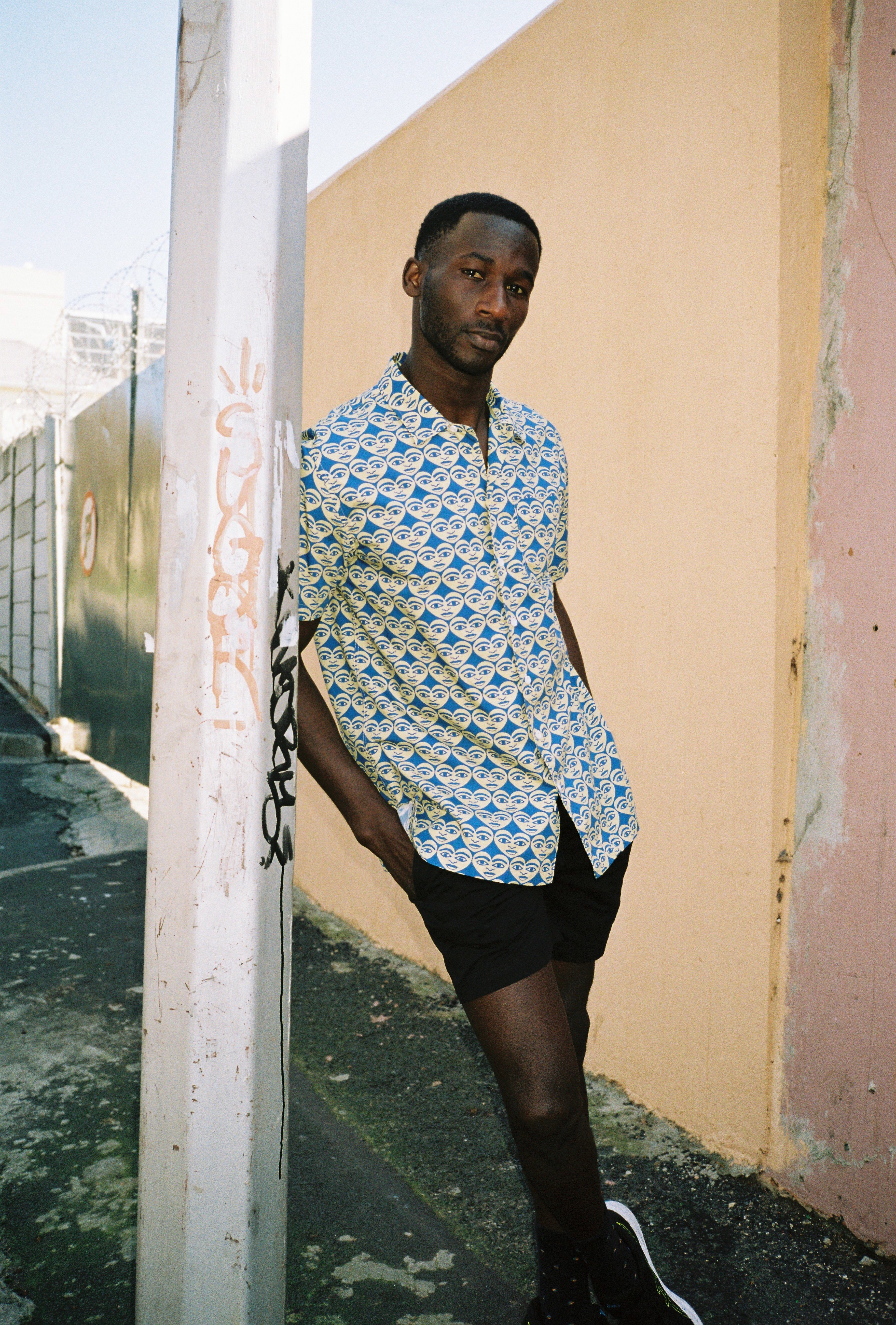
How involved have you been in the process of looking at samples, of talking about styles?
Oh, I’ve been in it for the last three and a half, almost four years, with Nick and Peet. Peet was just an incredible designer, graphic artist, and creative director. So yeah, I’ve gotten to be in it at the core. I’ve gotten spend a lot of time in South Africa and in Cape Town with my team. I’ve also had Nick, my main partner, here. We went and did all of, “Okay, here’s Los Angeles. Here’s what America looks like. Here’s what streetwear looks like. Here’s where the intersection of active sports culture and streetwear looks like. Here are all the things that we don’t want to do. Here are all the things that make us unique, coming from where we do, that we can bring to the table here.”
So, staying true to the genuine nature. Being in a position where you don’t have to invent and you don’t have to try to mimic anybody is fun in an industry, especially when you look at surf lifestyle. For the most part, everybody is doing a different version of the same thing. Insert logo here. And that is something that we look to definitely disrupt a bit. Hopefully, offer clothing that feels like an opportunity for self-expression and communicating a little bit more.
I just love this idea of African wearability because, think about it, man. People really just think of Africa as Discovery Channel, and Mount Kilimanjaro, and a couple of little things in between. But for the most part, people are not checking for the music, and the art, and the culture, and the history, and the ingenuity, and all the things that make these places so rich, and that make the continent so diverse. Which is why it’s so absurd that most people really think of Africa as a country.
It’s so funny, and just have no scope of the size of this continent, right? If you walk to the average person on the street and you say, “How many times do you think you could fit the United States inside the African continent?” I would predict that 90% of people would be way off. [Three.]
They’d be way off. I guarantee you, the number of people who would tell you that there are 10 or fewer countries on the continent would be overwhelming. So it’s nice to be able to have an opportunity with this brand to build a bit of a Trojan horse that builds genuine curiosity about the continent and what it’s given us, is giving us, and still has yet to give.
To do so through this uncertain lens that nobody would really see coming in surf culture. That’s my favorite thing about getting to be a part of Mami Wata at this base level. Look, a lot of it comes back to what we discussed earlier about my heritage. My dad fought for 30 years to get home. When he finally did get home, the thing that I think that dismayed him the most was that everyone on the continent was doing their best to be their best version of the West.
Like that’s the cool thing is to sound as American or be as down with American and Western culture as possible in a lot of parts of Africa. It’s only now, that with this big renaissance, especially from the electronic side of African music, that people are really beginning to understand like, “Oh, shit, there’s so much popping off.”
I’ve met so many people who talk about his music as an awakening.
My dad was just like, “Look, I love the rest of the world.” My dad wasn’t a cultural chauvinist. He was wildly passionate about Cuban and Brazilian culture, and all of South America and Southeast Asia. He could explain to you the socioeconomic history, the culture, and the politics of anywhere in the world. What made their music special and their food special. He just wanted Africa to play on the same level. He wanted people to be just as curious, and to have that bucket-list desire to touch, and feel, and taste, and take pictures with. Show off that these are the places that they’ve been to, as they have the rest of the world. That was the thing that he was advocating for the hardest, Africa taking pride in the fact that it influences the world harder than it thinks.
After I lost my dad, and you think about legacy. I found myself very, very lost, and being like, “Well, how do I even help to uphold that a little bit?” I came to realize that I didn’t need to invent anything. I had a natural pipeline where my passions already lie with surfing and with action sports culture as a whole. Why not try and help contribute to a bridge that’s already being built on so many fronts with tech, and art, and music, et cetera, to help join and get to work in continuing to build that bridge, so that there’s this natural flow and exchange between the West and the most exciting continent on the planet, in Africa?
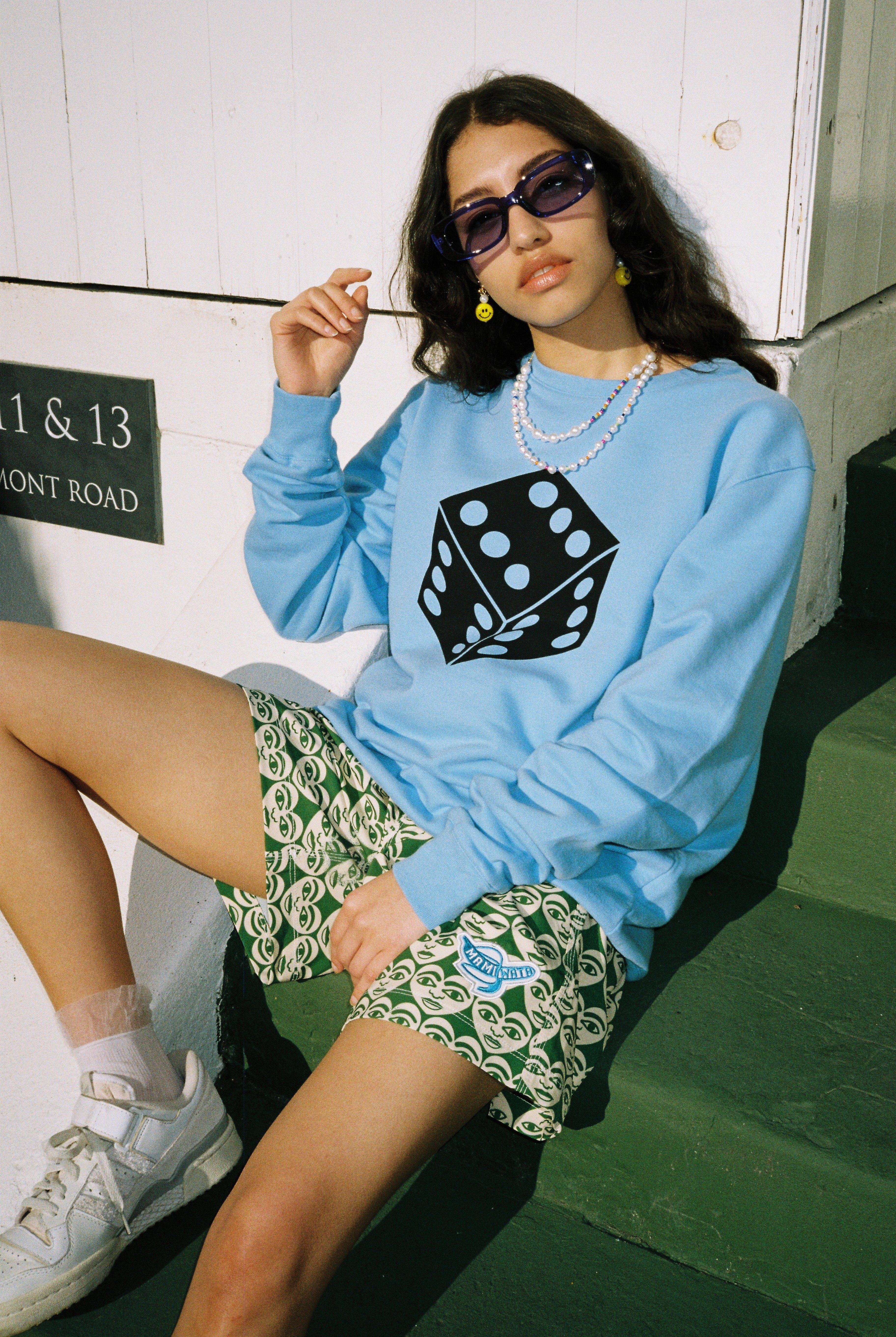
Man, I love this. My temptation and my gut instinct is just to keep going for hours because, like the best interviews for me as a writer, you’ve shifted my own thinking. And pivoted any notions that I had, which I appreciate so much. Last thing, these surfboards you guys are making — I’ve seen some designs hit social media — are just incredible looking. Are those coming to the US ever?
Yes. The surfboards will come more in drops and small collections. But yeah, man.
I’m so excited. I mean, the way my email and phone have been blowing up in the last 24 hours from the biggest brands in surfing to be like, “Yo, how can we get down?” is really, really crazy. It’s further proof to me that, whenever I think that there’s no hope, and it’s very easy to lose hope in a country that is trying to … We’re in a vehicle that’s going down the freeway at like 90 miles an hour.
Every once in a while, not even every once in a while, every day, they’re trying to literally throw the thing into reverse while we’re going 120-miles-an-hour forward, right? You’re like, “Is the transmission just going to drop out of this thing?” because if that’s what happens, we’re all done. But it just reminds me that people … Well, as long as people don’t know something, it’s easy for them to brush it off and choose to not be curious. What they don’t know is good for them. Then it becomes undeniable, and they see it, and they can’t look away. Then everything they thought they knew is different now. Now they’re engaged.
That’s what it’s felt like just this the last three months or so. Or even going all the way back to when we launched a Kickstarter for the book. Which, for sure, never thought that we’d end up in a Penguin and 10 Speed distribution deal. We were very happy with the 1400 copies that we were able to make from the Kickstarter in the middle of a global pandemic.
We felt like, “Wow, we’ve achieved something we only could’ve dreamt of and probably wouldn’t have been able to achieve as well if we weren’t in the middle of a pandemic, because it forced us to really create it in a way that was super collaborative. Without any sort of highfalutin ideas of control.”
Then we enter into this partnership where the book gets to get real distribution. I love that my kids are going to grow up with surfing from a perspective of knowing that this is always what it is. Or for someone who is isn’t even in the surf community to be like, “This changes the way I look at the world now. I didn’t know that this was even a thing. What else are you doing?” That excites me because it’s just a matter of being able to share and offer something that this … The book is something that you can’t look away from. I think it makes you want to learn and know more. I hope that we’re able to create more of the same in this dialogue with the brand.
